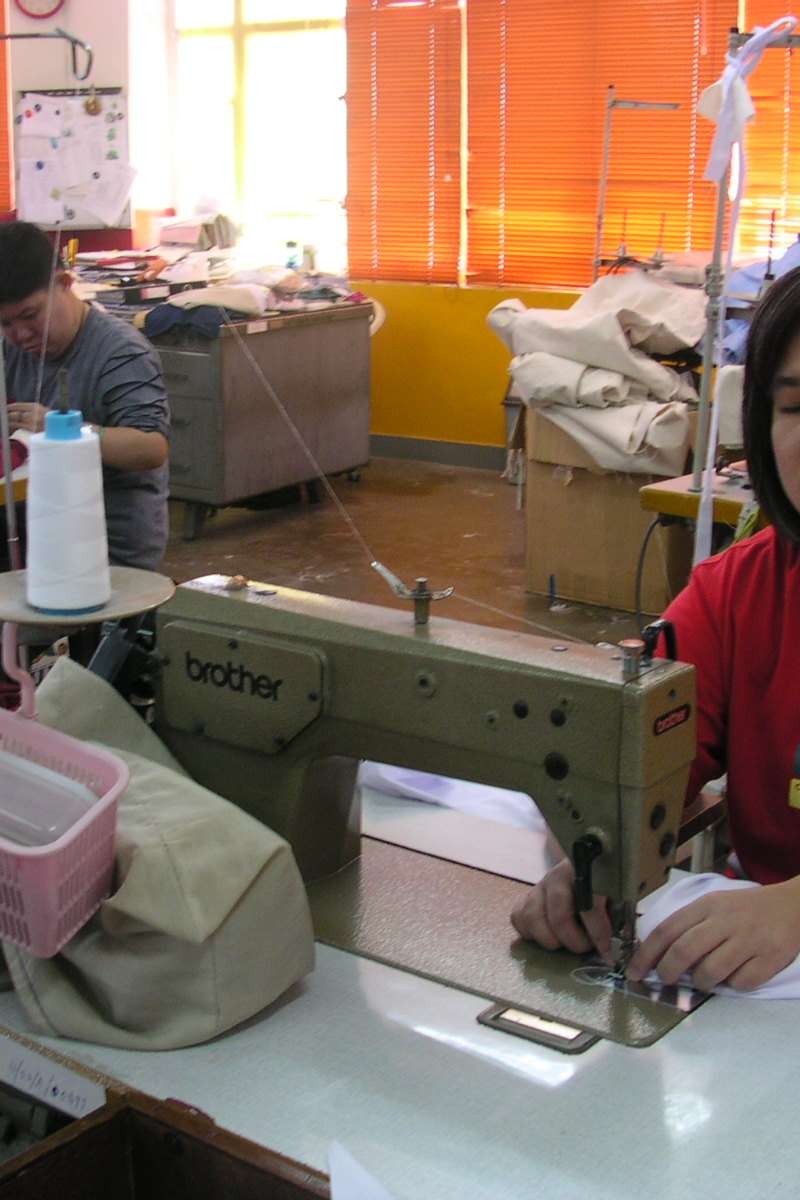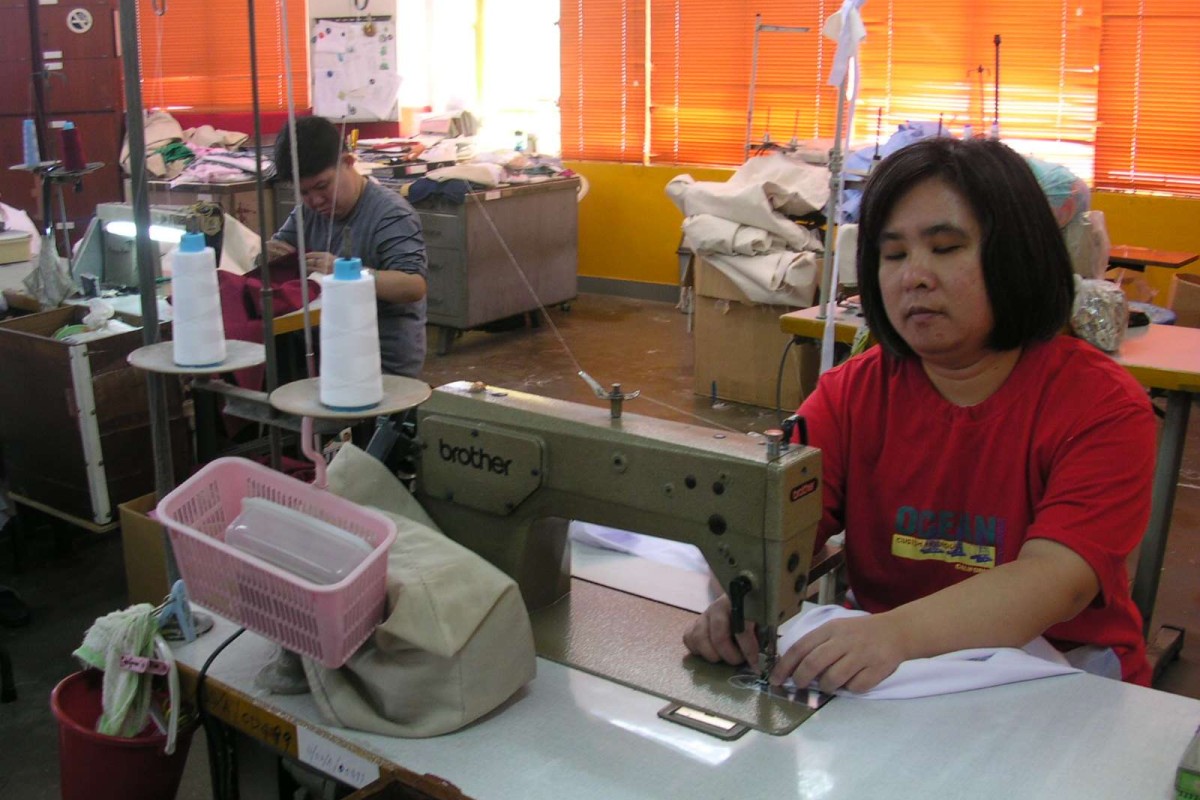
Hong Kong Factory for the Blind: helping people find independence and hope
With job training and social activities, the Factory for the Blind gives people hope
 The Factory trains its blind workers to do even the most delicate of work.
The Factory trains its blind workers to do even the most delicate of work.Many students would be familiar with the crisp new ink of exam papers fresh from the printer as they are placed in front of you. But not many may know of the origin that small, inconspicuous, but important green filing tag that stops all your pages from falling apart. In fact, it was a worker at the Hong Kong Factory for the Blind, who had pieced it together for your use.
Since its establishment in 1963, this factory, located in Kowloon City, is the only factory of its kind in Hong Kong – offering blind people employment and a training ground for them to develop skills to improve their quality of life. Currently, the factory provides job training for over 210 full time blind and mentally disabled workers (service users). Some of their many jobs include cleaning the airline headphones from major airlines after use, repackaging, product promotions, embroidery, and sewing.
Sean Fong, the factory manager, recalls the evident changes in the workers after they start working at the factory. They become more independent with their new skills, and are always eager to learn more. For Fong, that is the most rewarding part of the job.
This success would not be possible without the patience of the managers and social workers, because it requires a long time for these workers to grasp and adapt to the work.
“We have a training scheme for them, and we evaluate their progress year by year, to set new goals for them to achieve. For example, can they assemble more filing tags at a faster speed?” The goal is not just to increase productivity, but also to develop more skills.
“In the beginning, we let them try out different roles, and let them decide for themselves. There is really no limit to who can do what, so long as the workers have a passion for what they do,” says Fong.
While the factory has specialised computers that allow the blind to type and read emails, the same workers operate the sewing machines without technology. Ever experienced how hard it is to thread a needle? These visually impaired workers are able to do it with incredible accuracy and speed!
In fact, the factory is always developing more jobs. Back in the ’90s, before acquiring industrial machinery, it initially specialised in simple assembly jobs, such as making brooms and paper. Now, the factory is trying to offer more jobs with a service-based nature, such as call centres and piano tuning services, so the workers can interact with the local community and become more integrated.
Ultimately, social inclusion is the biggest goal for the factory, so recreational activities are organised to help workers develop their personalities. It is definitely not easy organising trips with more than 200 people, but Fong says that young people can help by becoming volunteers to assist with the outings and activities.
Thomas Ng has been a programme officer overseeing the workers at the factory for six years now. He has been blind since the age of 18, due to retinal detachment. As he navigates the network of staircases in the factory with ease, he says: “I used to see some blind people on the streets, and never imagine that it would happen to me.”
But blindness has not stopped him from doing what he loves. “Before, people predicted that I would lose 100 per cent of my working ability. But what I learned over the years is that perseverance is the key to everything,” says Thomas. “Many of our workers have unique talents regardless of their mental disabilities; some are very talented musicians.”
Thomas strongly believes that people have the ability to adapt to meet new challenges. In fact, he was first drawn to come and work in the factory due to his passion to help others with disabilities: He has helped to design Braille maps for the MTR, and gained a university degree. Currently, he is in charge of leading visits around the factory, recruiting volunteers, and planning recreational activities for the workers. Thomas believes that it is vital to raise community awareness about what it is like to live with disabilities.
The visitors touring the factory also benefits the workers. “Not only does it raise public awareness, it makes the workers feel cared about. They really want to share their emotions, and though it is very difficult for them to communicate this, interacting with visitors builds up their confidence.”
The deep bonds formed with the volunteers and programme officers mean that daily life at the factory isn’t just about working. All the volunteers have become mentors who genuinely care about the workers’ welfare. For many disabled workers, especially those recovering from mental illness, this is the ultimate healing process, because it gives them a stable role in life. In fact, this is also why there are still workers over 70 years of age coming to work everyday.
“Their hardworking and positive attitude is something I think the youth today can definitely learn from,” Thomas says.
“Working in the factory is a very special experience. Each of the workers has been through so many challenges in their lives, but they always come to work with a smile, and eagerly greet me by name. It is such a supportive environment.”
The factory is located at 19 Mok Cheong Street, To Kwa Wan, Kowloon
Want to visit or volunteer? Call 2362 0451 or email them at [email protected]